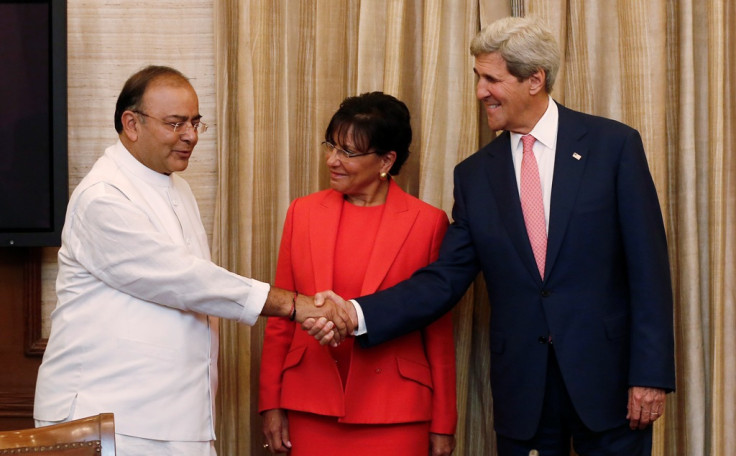US Hopeful of WTO Deal with India As Deadline Looms

The US has said it remains hopeful that differences between India and World Trade Organisation (WTO) members over a stalled global trade agreement could be resolved in time, with just hours remaining for the deal to be signed.
US Commerce Secretary Penny Pritzker, accompanying Secretary of State John Kerry on an India visit, told news channel NDTV that she was "...hopeful that within the period of today...there is a common ground that is found."
Kerry and Pritzker, who met Indian Finance Minister Arun Jaitley, tried convincing New Delhi to sign the WTO Bali trade deal, an unnamed source told Reuters.
Jaitley, however, reportedly repeated his country's principled stand: India has demanded that a deal be accompanied by a parallel agreement giving the subcontinent more freedom to subsidise and stockpile food grains for its impoverished population.
Deadline Looms
The Bali accord is tipped to inject $960bn (£569bn, €717bn) into the global economy and promises to cut red tape at customs the world over. The deal is expected to create 21 million jobs globally.
The WTO deal must be rubber-stamped in Geneva on 31 July.
A failure could prove disastrous for the WTO as it will stoke doubts about the organisation's negotiating powers.
India Justified?
Indian economists believe India's position is justified.
"I would go with [the Indian government's] stance given that 30% of [India's] population is below the poverty line and [the government] has to feed them," Charan Singh, economist and Reserve Bank of India (RBI) Chair Professor of Economics at the Bangalore-based Indian Institute of Management (IIM) told IBTimes UK.
"70% of India's population survives on agriculture, which accounts for 14% of the country's GDP. India has to protect its rural sector and its farmers. [Prime Minister Narendra] Modi's model of governance in the Gujarat state was about strengthening the rural sector and the [2014 annual] budget has done the same.
"And given India's size, food security is very important," Singh said.
"India has suffered humiliation on food security in the past, during the 70s and during partition. Those scars remain and they have to be taken care of.
"[WTO members] were to discuss India's concerns post the Bali deal. Seven months have passed and I have not seen any development," Singh added.
Earlier, economist V Anantha Nageswaran, in a column published in the Mint, said that "...India is right to take the stance it has taken..."
"Anyone who has a basic understanding of option pricing will know that surrendering a policy option is like throwing away a deep out-of-the-money call option that is unexpired. It carries value. The policy optionality on what to do with India's food security needs and how to go about meeting those needs should rest with the government of India. It is not to be negotiated away in a multilateral forum.
"If India is holding up the trade facilitation deal as a quid pro quo for getting its way on the food security matter, that is fine as far as negotiations go. China issued an ultimatum to Britain on its prime minister meeting the Dalai Lama. Britain meekly obliged. Trade policy as much as foreign policy is not about being liked but about growing a spine..." Nageswaran wrote.
The December 2013 Bali world trade talks were part of a 12-year-old drive to expand multilateral free trade in sensitive areas such as agriculture. Negotiations first began in Doha, Qatar, in 2001.
© Copyright IBTimes 2025. All rights reserved.






















